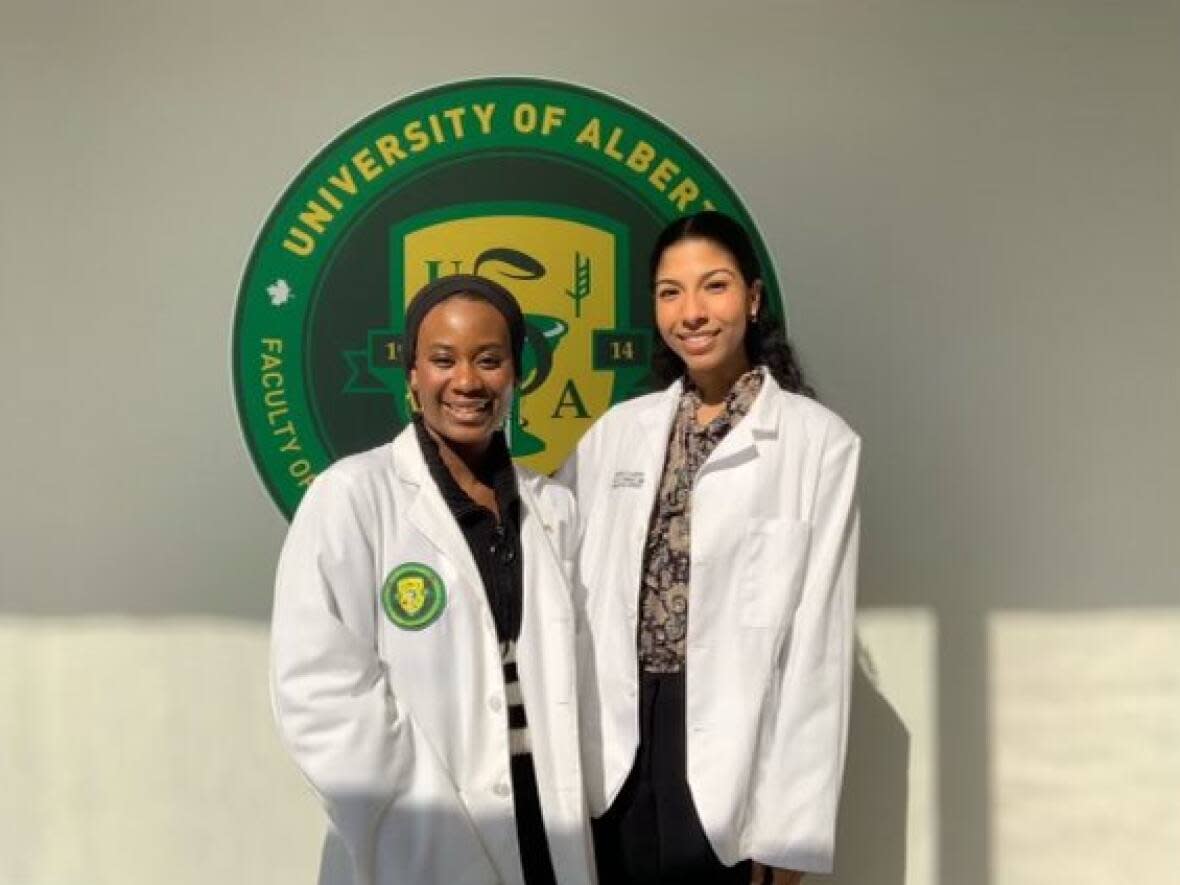Black pharmacy students at U of A dispelling myths about darker skin through pop-up clinic

The Black Pharmacy Students' Association from the University of Alberta is shedding light on how dermatological conditions display on skin of colour at a pop-up clinic.
Students in the group say university textbooks focus on diagnosing white skin, and there isn't enough information available on how conditions present on darker skin.
"Our learning and curriculum was lacking a lot in black health," said Aisha Ibrahim, co-president of the Black Pharmacy Students' Association.
"We saw a deficit in that, and we wanted to rectify that and get more information out into the public."
The group organized a pop-up clinic for Saturday (March 25) at the Castledowns YMCA to help people of colour identify and manage common skin conditions.
Students, pharmacists and dermatologists will share information through booths and presentations on topics like treating Acne and identifying Eczema. Medical professionals will also answer questions from attendees.
The Black Pharmacy Students' Association was founded in 2020 and members have worked with professors to improve representation in the University of Alberta's faculty and curriculums.
Ibrahim said there's a lack of content on darker skin in Canadian university classes.
"It's easy to kind of see it," she said. "And you see it in almost every course that you [take]."
Ravina Sanghera, U of A Pharmacy professor, helped organize the pop-up event. She's worked with the association to create more inclusive pharmacy training.
Sanghera has also helped rewrite some textbooks to include more diverse discussions and photos.
She wants to ensure her three kids, who have different skin tones, have access to adequate dermatology care when needed.
"[I'm] always wondering if clinicians are equipped to notice signs and symptoms on your skin and how they would treat it," said Sanghera.
She also said the university is creating professional development sessions so care providers can better serve their patients, and faculty members are attending conferences on representative medicine to better serve their students.

Through the event, the students' association also aims to shatter myths around skin care.
Ibrahim will share information about protecting darker skin from the sun and what type of sunscreen offers the best coverage for people of colour.
She says many people of colour believe cancer rarely presents in black skin because of melanin pigmentation.
"Growing up, I never worried about sunscreen because we believed in that," she said.
"It wasn't until I started learning more about this, got into sciences … I learned that this is completely false."
Skin cancer is often diagnosed later in people of colour when it's harder to treat, according to the Skin Cancer Foundation.
The pop-up clinic is the first event of its kind in Edmonton, but the Black Pharmacy Students' Association plans to host additional sessions.
Group members want people struggling with skin health to leave with new, everyday management tools.
"If [attendees] just took away one thing, that would be really beneficial," said co-president Camala Soliman.


